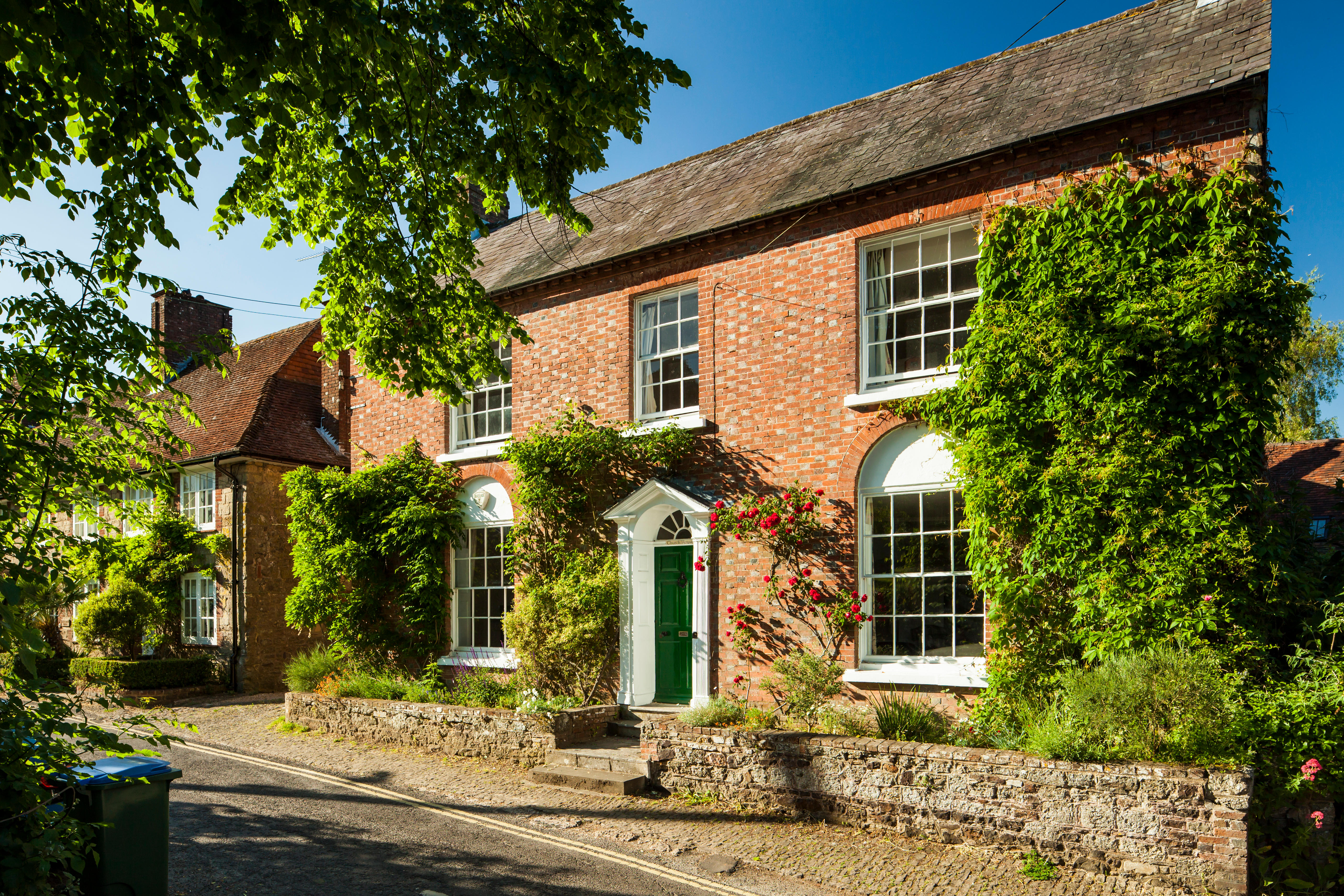Is this the end of the Forever Home?
The classic dream of finding a family house in which you can settle down, raise a family and grow old has never been harder to obtain. So has the concept of the 'Forever Home' had its day? Annabel Dixon reports.


Exquisite houses, the beauty of Nature, and how to get the most from your life, straight to your inbox.
You are now subscribed
Your newsletter sign-up was successful
The ‘forever home’ has long been a cherished dream for many. Somewhere to put down roots, get stuck into the local community, and perhaps raise a young family. Who hasn’t pored over properties in Country Life and earmarked the ones they’d like to one day call their forever home?
Well, perhaps more people than you realise. A new report claims that the traditional life goal of a forever home is losing its relevance among younger generations. A new survey by Zoopla found that nearly two thirds (63%) of homeowners under 34 years old feel the concept of the forever home holds less importance than it did for their parents’ generation.
Rather than looking to settle down and stay put, almost half of this group (45%) anticipate moving home within the next five years, compared to 28% of 35–54-year-olds. What's more, four out of five of younger homeowners 'place high importance on future renovation potential'; or, in other words, to make money from their home. And these young buyers are three times more likely to see their home primarily as an investment, rather than a place to put down roots.
Zoopla's conclusion is that the idea of the forever home is fading; but are they reading the tea leaves wrong? People are having children and settling down much later in life than they did a generation or two ago. Is the forever home a concept whose time is up, or something that's merely being delayed to later stages of life?
'The cost of buying a home today means most people have to take incremental steps'
Glynn Gibb, regional director at John D Wood & Co, believes it will always have a certain romance to it. It’s just that ‘for many buyers today, life simply moves too fast for permanence to be the goal’.
Geoff Wilford, founder of Wilfords London, agrees: ‘It’s not that people don’t want to settle down, but affordability and lifestyle realities have shifted expectations. The cost of buying and running a home today means most people have to take incremental steps.’
In Winchester, the forever home is still a trend but perhaps one that’s been delayed, suggests Lindsay Johnn, head of Strutt & Parker’s office in the pretty cathedral city.
Exquisite houses, the beauty of Nature, and how to get the most from your life, straight to your inbox.
She explains: ‘Forever homes are no longer the default preference for those in their 20s or early 30s; affordability is one barrier, while – broadly speaking – couples are electing to have children later than the generation before.’
It can’t help that household budgets have been squeezed in recent years by a variety of factors, including higher mortgage rates and a cost-of-living crisis. Put simply, it’s become harder to get onto and move up the housing ladder.
North of the border, Jamie McNeill, director of buying agency Fyndd, says that for many buyers in their 20s and 30s, the forever home is increasingly out of reach, particularly in areas such as Edinburgh and East Lothian.
Still, Jamie adds, the forever home concept continues to hold true for his clients in the generations above — often those relocating, upsizing, or returning to Scotland.
But it’s not just the sheer cost of buying a forever home that’s hampering interest among younger homeowners. It’s the issue of maintenance too, especially in the high-end country house market.
George Nares, co-founder of Blue Book Agency, explains: ‘Families who might once have bought substantial country houses are now struggling to afford them — especially once you factor in the considerable cost of renovations, much higher running expenses, and the broader rise in the cost of living — which has reduced the more traditional buyer pool for these types of houses.’
Even those who thought they’d found their forever home might not follow the well-trodden path of growing old in it. Harry Gladwin, head of the Cotswolds at The Buying Solution, has spotted many people reassessing it five years later.
‘Forever home reassessments tend to happen earlier these days (around late 40s and early 50s) and interestingly these movers tend to be bolder with their location choices. They feel confident in their main focus areas, but are happy to be a bit further away if it means better value,’ he explains.
Harry cites a client who moved from London into a large North Cotswolds village home with their teenagers. Four years after their children had finished school, they moved to a newer build close by — and freed up some cash in the process.
'Not a shrine to permanence, but a flexible asset'
What seems clear is that younger generations are after flexibility. According to Daniel Copley, consumer expert at Zoopla, they are ‘acutely cost-conscious and view their property not as a shrine to permanence, but as a flexible asset that must align with their fast-changing lives’.
It’s hardly surprising given all the twists and turns in the housing market over the last few years, ranging from the repercussions of the pandemic and, later on the mini-Budget in 2022, through to recent tax changes.
Harry points out: ‘The mix of shifting government policy, an unpredictable economy, lessons learnt from Covid and the ease of working or moving abroad means buyers value the option to move, whether for opportunity, lifestyle or to avoid punitive tax changes.’
The evolution of careers and work patterns has also shaped what younger generations look for in a home.
‘This generation changes jobs, industries and even cities far more often than their parents did, so flexibility is built into how they think about home ownership,’ explains Geoff. ‘They’re used to moving around, whether that’s renting or buying, and they see property less as a permanent anchor and more as part of a life that will keep shifting.’
'A special home that will offer a sense of permanence and become their centre of gravity'
Zoopla’s survey also reveals that the vast majority – 88% – of homeowners hold the romantic view that a home is primarily a ‘place to build a life and memories’.
This is echoed by Jamie, who says his clients in their late 30s and older ‘are looking for that special home that will offer a sense of permanence and become their centre of gravity, the foundation of family times and happy memories’.
Indeed, just 7% of all homeowners consider their home purely as a financial asset to be leveraged. But that figure more than triples among 18–34-year-olds, to 23%.
That may explain, in part at least, why younger generations prioritise homes that have potential to add value. Zoopla’s survey found that half — 49% — of all homeowners believe it’s important to have the option to renovate their home. Yet that proportion stands at 82% of 18 to 34-year-olds and 57% of 35 to 54-year-olds.
In Lindsay’s experience, buyers looking for their forever home are typically in their late 30s or early 40s – and they are unlikely to be put off by the prospect of rolling up their sleeves.
Lindsay says they've just launched a home to the market in Winchester that has been lived in for more than 60 years by the same family. In five days, they've had about 20 interested parties, most of whom are taking the second step up the ladder.
‘The attraction? It’s got all the hallmarks of a forever home; close to schools, transport links, outside space, detached, and because it’s been a home for 60 years needs some updating. Buyers are more than happy to put in some work and make it their own when they see themselves there for the long haul.’

